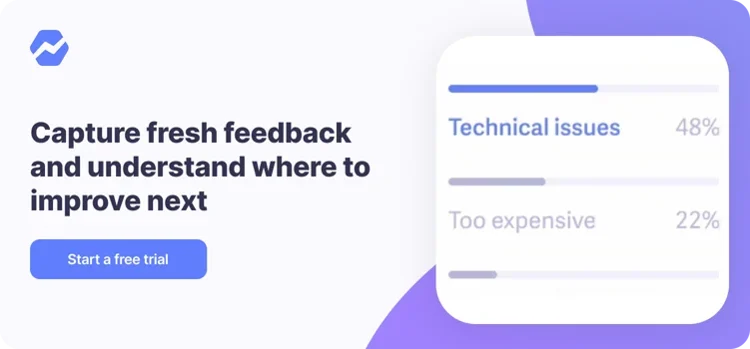Table of Contents

When you’re just getting started, everything feels like a big deal. Everything. The tinniest things can turn in to huge showstoppers that drain time and, in many cases, money. But the longer you’re in the game, the more you realize how few things actually matter.
Seriously, almost nothing is actually a big deal, but man do we founders love to make things a big deal. Of course everything’s a big deal! The entire existence of our company hangs in the balance! That thing we’re trying to make a decision on? Yeah, it’s either going to give us the most hockey-est of hockey-stick growth, or it will literally send our company in to the startup equivalent of The Upside Down!
So, what are some of the things founders like to stress over that really, at the end of the day, don’t matter? Lucky for you, I have a list!
Now, the caveat here is that sure, there are instances where these things do matter. Startups, much like life, are rarely black and white. Growth and progress happens in the gray areas…the parts where there are no definitive right and wrong answers, where you may never know if a given decision actually had an effect on things.
Ultimately your success is the sum of all your decisions, not any singular move.
Swag
Startups love swag. T-shirts, socks, stickers, tote bags, water bottles, pens, crocheted monkey hats and…rocks? You name it, a startup has slapped their logo on it.
Yes, everyone loves a nice, soft startup tee with your favorite payment processor or hipster meal replacement logo on it, but swag has exactly zero to do with growth and is a waste of your time and money in the early days.
I remember an episode of Shark Tank where Mark Cuban lost his mind over a business that came in talking about how their growth strategy was going to be passing out t-shirts, and with good reason.
Logos on swag (or anywhere else for that matter) are about branding. And branding is an exceptionally long game. It’s something that can take actual years to see any fruit from. When you’re starting out, you aren’t even sure if your company will be around in 6 months, let alone 5 years.
Winning every customer
I’m going to say this, and you’re going to balk: You should turn away some customers.
Whether it’s the competitive nature of founders or just delusion around thinking your product will be a perfect fit for everyone under the sun, too many founders get obsessed with closing every deal and bending over backwards for every potential customer.
It’s easy to get caught up in the prospect of some big customer coming on board. But what happens is you start building in features just to satisfy this one potential customer…that you may not even get. You start pushing your team to work faster and harder just to win single accounts and it ultimately creates a messier product and a frustrated team.
There will be many times you need to tell customers “we’re not the right fit for you”.
Long term business plans
It can be fun to think about the future, but planning more than a year down the road is mostly a waste of your time. Technology and industries change too fast and your ability to estimate time is too terrible.
There are too many variables to be able to accurately plan that far in advance, so getting worked up over your business plan not going to plan is a waste of breath.
Competition
The competition. Few things stir up emotions in business the way “competition” does. Every move a competitor makes feels like a personal attack. But the fact is, the competition doesn’t matter.
It’s so easy to fall in to the habit of checking up on what your competition is doing. You start checking their blog regularly to see if they’ve released any new features, you add their name in Google Alerts, you follow them on Twitter…all so you don’t miss out on their next big move.
But here’s the problem: following the competition puts you perpetually one step behind. It makes you reactive instead of proactive.
When you built your product, you built it because you were able to solve a problem in a unique way. When your customers signed up for your service, they did it because they also believed in the way you were solving a problem.
Once you start trying to feature-match your competition, you’re no longer solving your customers’ problems. You’re solving your competitors’ customers’ problems. And chances are you’re not even doing it that well.
Having an office
Being all in the same place every working hour of every day just isn’t necessary any more. The pros of hiring from anywhere on earth and giving your team flexibility of schedule to live and work in the setup they choose far outweighs any cons.
Yes, being in the same place does make collaboration easier, but “collaboration” isn’t the end game.
The only flip side to this is that everyone doesn’t love working remotely. I totally understand how some people much prefer being in an office with their coworkers to another setup. So, there’s a time and place for it but too many companies have literally gone out of business because they got a fancy office space and refused to hire outside of their city, making the cost of hiring exponentially higher and adding massive overhead.
The next feature
As a founder, you ooze optimism. It’s a necessary coping mechanism to deal with the volatile up’s and down’s of creating something out of nothing. But that becomes problematic when you’re still finding product/market fit as it makes you believe that next feature will be the feature that solves all of your product’s problems. It won’t.
Andrew Chen calls this the Next Feature Fallacy.
Features don’t grow businesses. Solutions grow businesses.
That’s not to say features don’t matter, but progress isn’t made by shipping features, it’s made by solving problems. Like I said, solutions grow businesses, and ultimately solutions are the sum of all parts: features, marketing, onboarding, customer support…the whole bag.
A/B testing
A/B testing is something that feels like a good use of your time and feels like progress, but is incredibly misleading.
On the outset, very few companies have enough top-of-funnel anything to actually get statistical significance. Traffic, leads, signups, trials, clicks…whatever. Very few companies actually get enough of those things to run a valuable A/B test.
Lars Lofgren, who heads up growth at I Will Teach You To Be Rich and previously KISSmetrics, has a great article on A/B testing that lays out exactly why this is problematic.
In that article, he mentions “only launch variants at 99% statistical significance”. And what you’ll find is that most times it’d take actual years for you to run enough traffic through your test to get that kind of significance.
On top of that, most companies stand to get much larger upticks in revenue from things like raising prices, offering upsells or improving onboarding.
Metrics
WHAT?!?!?!?! Yes. Metrics. I think most companies care too much about metrics. Namely, they care about metrics when they don’t actually have any.
I’ve had countless conversations with young companies where they’re freaking out over a 25% increase in churn, but when I look at their data we find they only have 4 customers.
Or the inverse (which I was very guilty of in the early days) was celebrating “30% month over month growth” when we were doing $1,000/mo in MRR. It’s really easy to get huge growth rates when you’re making nothing. Then you start extrapolating that growth for years to come and think you’re going to be making millions in no time.
There’s a time and place for data, unquestionably. But obsessing over data when you’ve got very little of it, is only a distraction.
What about you? What are some things you’ve found just don’t matter?



